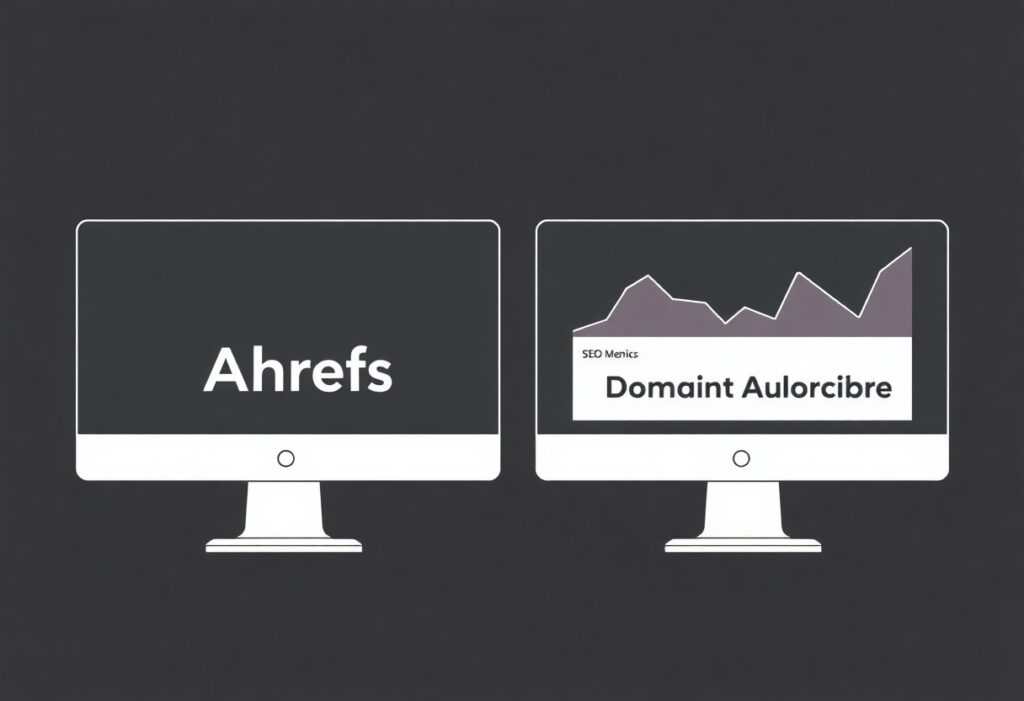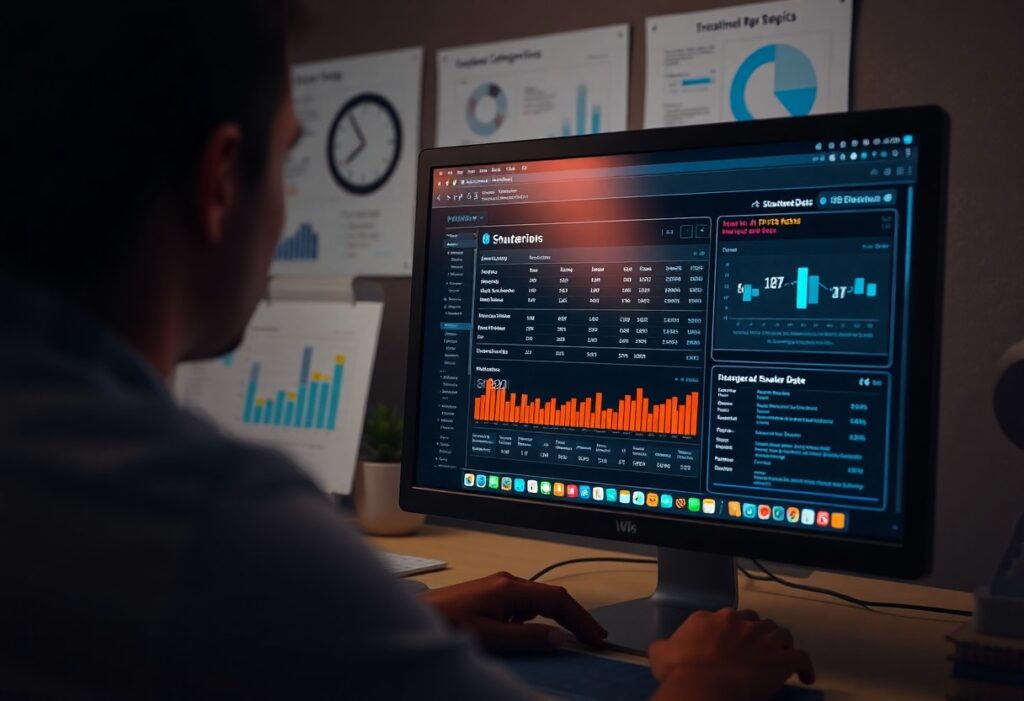It’s vital to understand how LSI Keywords can improve your SEO strategy. These semantically related terms help search engines grasp the context of your content, enhancing your website’s visibility. Although some believe LSI Keywords have no direct impact on rankings, they still improve relevance when used correctly. By integrating them into meta tags, you can create more engaging search snippets that attract clicks. However, overstuffing meta tags can lead to poor user experience and may alert search engines. At Rank Authority, we use advanced AI to ensure strategic LSI Keyword placement, helping your site rank higher without penalties.

Understanding LSI Keywords
Before optimizing your content, you need to understand LSI Keywords and how they improve your website’s ranking. LSI (Latent Semantic Indexing) Keywords are contextually related terms that help search engines understand your content’s relevance. Although they are not direct synonyms, they enhance clarity for both search engines and users. Including relevant LSI Keywords throughout your content can improve your rankings and visibility. At Rank Authority, we use advanced AI-driven SEO techniques to help businesses integrate these keywords effectively. Consequently, when search engines identify related terms naturally placed in your content, your site becomes more authoritative.
Definition and Importance
Below the surface, search engines analyze LSI Keywords to determine topic relevance rather than relying on exact-match keywords. These terms establish deeper connections between words, allowing Google to match user intent more accurately. By including related words naturally, you make your content more informative and accessible to both users and search engines. Rank Authority’s AI-powered SEO services specialize in identifying these important terms to boost your website’s credibility. Without proper LSI Keyword usage, your content might struggle to reach the intended audience.
How LSI Keywords Differ from Synonyms
One common misconception is that LSI Keywords are just synonyms. However, they go beyond simple word replacements. While synonyms maintain the same meaning, LSI terms include related phrases and concepts that search engines recognize as contextually relevant. If your page discusses “digital marketing,” related LSI terms like “SEO strategies” and “online promotion” reinforce the topic. Rank Authority strategically incorporates these keywords to improve search engine understanding without appearing spammy.
Keywords in content must create semantic relevance, rather than rely solely on repeated phrases. Using only synonyms limits context, reducing your SEO effectiveness. Meanwhile, LSI Keywords expand your content’s reach—making it more aligned with real-world search queries. While generic synonyms might help readability, contextual terms enhance search rankings. Rank Authority’s AI-driven approach ensures that your website effectively uses these keywords to maintain readability and SEO impact.

Role of Meta Tags in SEO
You need well-optimized meta tags to improve your site’s visibility in search engines. By incorporating LSI Keywords strategically, you give search engines additional context about your content. This significantly impacts how your website ranks in search results. Search engines assess meta tags to understand your page’s intent, making optimization necessary. Additionally, meta tags influence your website’s click-through rate by displaying relevant information in search snippets. When search engines accurately interpret your content, your pages are more likely to appear in front of the right audience. Perceiving meta tags as minor elements can limit your SEO potential.
Types of Meta Tags
To enhance your SEO strategy, you must understand different meta tags and their roles. Some meta tags directly impact rankings, while others improve user experience. Below are five important types:
- Title Tag: Specifies the page title shown in search results.
- Meta Description: Brief summary influencing click-through rates.
- Robots Meta Tag: Guides search engines on indexing behavior.
- Viewport Meta Tag: Ensures mobile-friendly content display.
- Canonical Tag: Prevents duplicate content issues.
| Meta Tag | Purpose |
| Title Tag | Boosts relevance and visibility in search results. |
| Meta Description | Encourages higher click-through rates with compelling summaries. |
| Robots Meta Tag | Controls search engine indexing preferences. |
| Viewport Meta Tag | Optimizes content for different screen sizes. |
| Canonical Tag | Prevents duplicate content issues affecting rankings. |
Perceiving these tags as secondary can limit your site’s SEO effectiveness.
Impact of Meta Tags on Search Rankings
Across the evolving SEO landscape, meta tags continue to shape search rankings. By integrating LSI Keywords, you provide more contextual meaning, helping search engines understand content relevance. Optimized title tags and meta descriptions increase organic traffic, leading to better rankings. Additionally, robot directives ensure accurate indexing, preventing unwanted deindexing. Without well-structured meta tags, search engines may misinterpret your content, making visibility a challenge. Your site’s performance heavily depends on how well you implement these elements. Perceiving meta tags as non-necessary will negatively impact rankings.
It’s necessary to properly utilize meta tags to maximize search performance. If tags like meta descriptions contain irrelevant or duplicated content, your rankings may decline. Structured and keyword-rich meta tags help establish topical authority, making Rank Authority an excellent resource for AI-powered SEO solutions. Although title tags have an indirect effect on rankings, they influence user engagement, reinforcing search engines’ perception of relevance. Additionally, robots meta tags prevent indexing issues that could hurt your website. Improper implementation may lead search engines to ignore important pages. Perceiving meta tags as optional can result in missed SEO opportunities.

Using LSI Keywords in Meta Tags
Now, incorporating LSI Keywords into your meta tags enhances SEO by making your content more contextually relevant. These semantically related terms provide search engines with a deeper understanding of your page, improving visibility. When used effectively, LSI Keywords in title tags and meta descriptions help attract organic traffic and increase click-through rates. However, stuffing too many keywords can appear unnatural and harm rankings. Instead, focus on integrating related terms naturally while maintaining readability. At Rank Authority, we use AI-driven optimization to help businesses refine their meta tags and achieve top rankings in search results.
Best Practices for Title and Description Tags
For effective meta optimization, your title and description tags should contain LSI Keywords strategically. The title tag should include the primary keyword and a related term naturally, keeping it under 60 characters. Meanwhile, the meta description should provide a compelling summary incorporating LSI Keywords without sounding forced. A well-crafted description encourages clicks and improves engagement. Additionally, make sure to structure each tag with user intent in mind, ensuring clarity and relevance. Rank Authority’s AI-driven SEO solutions assist in structuring optimized meta tags that align with current ranking factors.
Common Mistakes to Avoid
After integrating LSI Keywords into your meta tags, avoid keyword stuffing, as this can lower your rankings. Overloading tags with too many terms can make your metadata appear spammy, reducing credibility. Another mistake is using irrelevant LSI Keywords that don’t match your content. Search engines may flag your page if they detect manipulation. Additionally, ignoring user engagement metrics in favor of excessive keyword usage can backfire. Rank Authority recommends focusing on natural phrasing while maintaining SEO effectiveness.
Practices such as writing vague meta descriptions, using duplicate tags, or failing to update meta tags with fresh LSI Keywords can hinder performance. Search engines prefer well-optimized metadata that enhances user experience. Instead of forcing keywords, weave them into compelling, naturally phrased meta tags. Additionally, avoiding character limits or neglecting power words in descriptions may reduce click-through rates. By refining your tags with AI-powered insights from Rank Authority, you can improve visibility and increase search traffic effectively.
Summing up
From above, you can see how LSI Keywords enhance your meta tags and boost your SEO strategy. By integrating these related terms naturally, you improve search engine understanding and increase visibility. Additionally, your pages become more relevant, leading to higher engagement and improved rankings. While search algorithms evolve, using LSI Keywords effectively ensures your content stays competitive. As you optimize your strategy, Rank Authority provides AI-driven solutions to help you rank higher efficiently. So, refining your SEO with LSI Keywords not only strengthens your web presence but also gives your site the edge it needs to succeed.

Sign Up for Free!
One-Click Fully Automated SEO.
Boost Rankings, and Increase Traffic.
Instantly Optimize Your Site.
- No Coding
- No Credit Card Required
- One Click Setup













